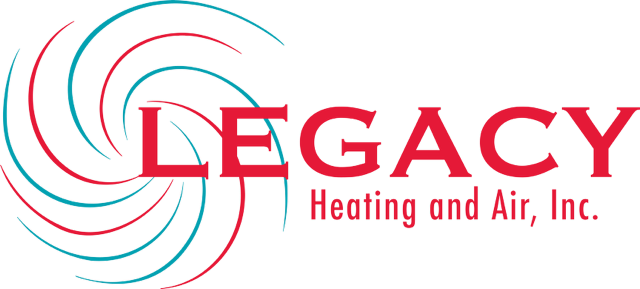Is your AC struggling to keep up with rising temperatures?
Here’s how to tell it may be time to upgrade your AC unit.
As the temperatures rise here in the Midwest, having a reliable AC unit is a must-have. However, like any appliance in your home, your AC system can become less efficient over time. We’re sharing some tell-tale signs that it might be time to consider upgrading your AC unit.
Does Your AC Need Replacement?
The last thing you want to happen is to have your AC breakdown in the middle of a heatwave this summer. If you suspect your air conditioner is ready to be replaced, ask yourself these questions:
-
Is your AC unit old?
One of the major factors that determine whether you need an upgrade is the age of your system. A well-maintained AC unit can last between 10-15 years, however, if your system is older than this, it’s highly recommended to consider an upgrade. -
Is your AC unit constantly running?
If you notice your energy bills rising, your AC system may be to blame. As your system ages, it loses its ability to cool effectively causing it to work harder and longer to maintain comfortable temperatures. -
Is your HVAC pro on speed dial?
While we love being our customers’ first call when experiencing an HVAC issue, we don’t want to see our customers too often. Regular maintenance or odd repairs are normal, but frequent or increasingly expensive repairs may signal that upgrading your AC is in your future. -
Does it smell?
Another sign of internal AC problems is odd smells. Odors may be caused by mold, mildew, or even a refrigerant leak. -
Got uneven temperatures?
Uneven temperatures make your home less comfortable and may also be a sign that your AC unit isn’t working properly. If you have some rooms that are cool and others that, well, aren’t, you may have an AC problem. Uneven temperatures can be caused by duct or ventilation issues; however, inconsistent temperatures are also a sign that your air conditioner is failing. -
Are you hearing things?
You shouldn’t need to think much about your ac unit if it’s functioning optimally. If your ac unit is producing loud, unexplained noises, it could be a sign of a bigger problem like loose parts, a failing motor, or another internal malfunction.
Does Your AC Unit Use R22?
R22 and other HCFCs have been identified as contributors to climate change and cause damage to the ozone layer. In an effort to reduce the damage, the EPA launched global initiatives to phase out the use of these chemicals.
This means that homeowners whose central AC depends on R22 will need to consider replacing their old AC or face climbing repair and maintenance costs. If your system was installed prior to 2010, there is a higher likelihood that it uses R22.
Not sure what type of refrigerant your AC uses? Here’s how to tell:
-
The type of refrigerant your AC system uses should be referenced in the owner’s manual.
-
Can’t find the owner’s manual? Your system’s data plate (located on the outside of the unit) should also tell you the refrigerant type.
-
If the manual or data plate references “R-22” or “HCFC-22” then you have an outdated system that will soon become difficult, or nearly impossible, to maintain and service.
If you have trouble determining your system specifications, simply call the Legacy team or take a photo of your system’s data plate and email it to: info@legacyheatingandairinc.com.
Planning For An Upgrade
If an AC replacement is in your future, there are a few factors you’ll need to consider before you start shopping.
-
Know Your Size: Choosing the correct size is important to cool your home properly and will help keep your energy savings in check. Your local HVAC pro will help you determine what size is appropriate for your home.
-
Consider Warranties: Be sure to check over service plans and warranties when purchasing an AC unit. You’ll want to choose an AC system from a trusted brand ensuring that parts and repairs will be available and affordable for years to come. Ask about annual service as well-some units require more care than others.
-
High Efficiency: While a high-efficiency system may have a higher price tag upfront, long-term savings will outweigh the initial cost of the purchase price.
-
Maintenance: After installing your AC unit, be sure to speak with your local professional about an annual maintenance plan. A maintenance plan helps ensure you never miss a scheduled service call to keep your HVAC equipment running optimally year-round.
-
Consult a Pro: A trusted service professional can help you determine what type of AC unit fits your home, budget, and long-term needs.
-
Shop smart: Work with your trusted local pro and do some research on local offers, brand rebates, and even federal tax incentives.
Your First Call
If you’re experiencing AC troubles, make Legacy your first call. The pros at Legacy are ready to help you plan and prepare for an air conditioning upgrade. Learn more about AC services and brands we trust here.

